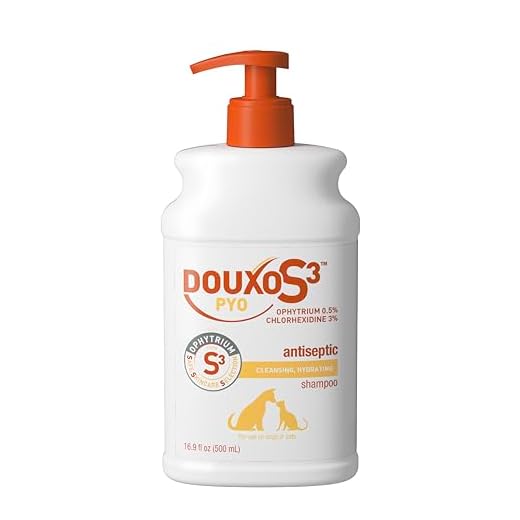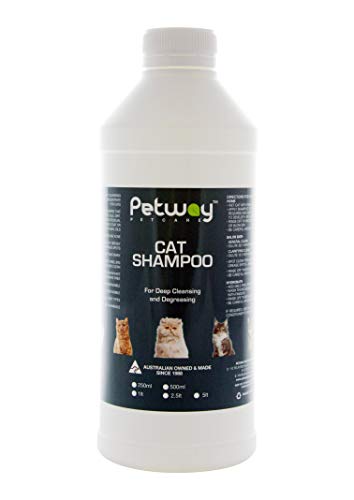



If you’re wondering about the best way to clean your furry companion, using warm water alongside a gentle, cat-specific shampoo is highly recommended. Look for products specifically formulated for felines, as they balance pH levels and avoid harsh chemicals that can irritate sensitive skin.
In case you don’t have commercial shampoo on hand, a mild baby shampoo can serve as a temporary solution. Just ensure it’s free of fragrances and dyes. Always test a small amount on a patch of fur first to check for any adverse reactions.
For drying, opt for a soft towel or a low-heat setting on your hairdryer. The latter can help fluff up the fur, but be cautious to keep it at a safe distance to avoid overheating. Patience is key during this process, as not all friends enjoy water, and making it a calm experience is essential for building trust.
Regular brushing can reduce the need for frequent washing, helping to maintain cleanliness and a healthy coat. Incorporating this into your routine will keep your companion looking and feeling great without the stress of a full bath.
Choosing the Right Shampoo for Different Coat Types
For my fluffy friends, selecting the right cleaning product is key. Short-haired kittens benefit from a mild, moisturizing formula that helps maintain their natural oils. Look for shampoos labeled specifically for short coats, as they provide gentle cleansing without stripping essential moisture.
Long-Haired Companions
For those with luxurious, flowing fur, a detangling shampoo is a must. These options often contain added conditioners to combat knots and mats. Ingredients like aloe vera and oatmeal soothe the skin while keeping the coat smooth and manageable. Regular grooming combined with the right wash helps prevent tangling.
Sensitive Skin Solutions
Some of us have more delicate skin. For those cases, hypoallergenic or fragrance-free shampoos work wonders. These formulas avoid harsh chemicals and artificial scents, making them perfect for reducing irritation. Always check for natural ingredients that calm and nourish sensitive skin.
Homemade Solutions: Safe Ingredients for Bathing Your Feline Friend
Oatmeal is fantastic for sensitive skin. Just grind plain oats into a fine powder and mix with warm water to create a soothing paste. Apply gently, then rinse thoroughly.
Another option is a mix of baking soda and water. This can help neutralize odors and is gentle on the skin. Use a tablespoon of baking soda mixed with a cup of water, apply, then rinse well.
For a refreshing wash, consider diluted apple cider vinegar. Combine one part vinegar with two parts water, which can help with itchiness and fleas. Rinse thoroughly to avoid lingering scent.
For a moisturizing touch, use coconut oil. Massage a small amount into the coat, avoiding the eyes and nose. It helps with dryness and gives a shiny finish. Rinse afterward to remove excess oil.
Lastly, a simple soap made from castile can be effective. Mix a few drops with water for a gentle cleanse. Ensure it is thoroughly rinsed out to prevent residue.
Alternatives to Bathing: Cleaning Methods for Cats Who Dislike Water
For those of us who aren’t fond of getting wet, there are several effective strategies to stay clean without a splash. One approach is using dry shampoo specifically designed for felines. This powder absorbs oil and dirt, leaving the coat fresh without the need for rinsing.
Wipes and Cloths
Another handy option involves pet-safe wipes. These are great for quick clean-ups, especially around the paws and face. A soft, damp cloth can also do wonders; just ensure it’s not too wet to avoid discomfort.
Brushing Techniques
Regular grooming with the right brush helps remove loose fur and dirt. For long-haired breeds, a slicker brush can detangle and smooth the coat, while short-haired companions benefit from a rubber grooming mitt that captures shedding fur and stimulates the skin.
In case you’re curious about other feline behaviors, check this link: why does my cat like being spanked.
Video:
If you’re wondering about the best way to clean your furry companion, using warm water alongside a gentle, cat-specific shampoo is highly recommended. Look for products specifically formulated for felines, as they balance pH levels and avoid harsh chemicals that can irritate sensitive skin.
In case you don’t have commercial shampoo on hand, a mild baby shampoo can serve as a temporary solution. Just ensure it’s free of fragrances and dyes. Always test a small amount on a patch of fur first to check for any adverse reactions.
For drying, opt for a soft towel or a low-heat setting on your hairdryer. The latter can help fluff up the fur, but be cautious to keep it at a safe distance to avoid overheating. Patience is key during this process, as not all friends enjoy water, and making it a calm experience is essential for building trust.
Regular brushing can reduce the need for frequent washing, helping to maintain cleanliness and a healthy coat. Incorporating this into your routine will keep your companion looking and feeling great without the stress of a full bath.
Choosing the Right Shampoo for Different Coat Types
For my fluffy friends, selecting the right cleaning product is key. Short-haired kittens benefit from a mild, moisturizing formula that helps maintain their natural oils. Look for shampoos labeled specifically for short coats, as they provide gentle cleansing without stripping essential moisture.
Long-Haired Companions
For those with luxurious, flowing fur, a detangling shampoo is a must. These options often contain added conditioners to combat knots and mats. Ingredients like aloe vera and oatmeal soothe the skin while keeping the coat smooth and manageable. Regular grooming combined with the right wash helps prevent tangling.
Sensitive Skin Solutions
Some of us have more delicate skin. For those cases, hypoallergenic or fragrance-free shampoos work wonders. These formulas avoid harsh chemicals and artificial scents, making them perfect for reducing irritation. Always check for natural ingredients that calm and nourish sensitive skin.
Homemade Solutions: Safe Ingredients for Bathing Your Feline Friend
Oatmeal is fantastic for sensitive skin. Just grind plain oats into a fine powder and mix with warm water to create a soothing paste. Apply gently, then rinse thoroughly.
Another option is a mix of baking soda and water. This can help neutralize odors and is gentle on the skin. Use a tablespoon of baking soda mixed with a cup of water, apply, then rinse well.
For a refreshing wash, consider diluted apple cider vinegar. Combine one part vinegar with two parts water, which can help with itchiness and fleas. Rinse thoroughly to avoid lingering scent.
For a moisturizing touch, use coconut oil. Massage a small amount into the coat, avoiding the eyes and nose. It helps with dryness and gives a shiny finish. Rinse afterward to remove excess oil.
Lastly, a simple soap made from castile can be effective. Mix a few drops with water for a gentle cleanse. Ensure it is thoroughly rinsed out to prevent residue.
Alternatives to Bathing: Cleaning Methods for Cats Who Dislike Water
For those of us who aren’t fond of getting wet, there are several effective strategies to stay clean without a splash. One approach is using dry shampoo specifically designed for felines. This powder absorbs oil and dirt, leaving the coat fresh without the need for rinsing.
Wipes and Cloths
Another handy option involves pet-safe wipes. These are great for quick clean-ups, especially around the paws and face. A soft, damp cloth can also do wonders; just ensure it’s not too wet to avoid discomfort.
Brushing Techniques
Regular grooming with the right brush helps remove loose fur and dirt. For long-haired breeds, a slicker brush can detangle and smooth the coat, while short-haired companions benefit from a rubber grooming mitt that captures shedding fur and stimulates the skin.
In case you’re curious about other feline behaviors, check this link: why does my cat like being spanked.
Video:
If you’re wondering about the best way to clean your furry companion, using warm water alongside a gentle, cat-specific shampoo is highly recommended. Look for products specifically formulated for felines, as they balance pH levels and avoid harsh chemicals that can irritate sensitive skin.
In case you don’t have commercial shampoo on hand, a mild baby shampoo can serve as a temporary solution. Just ensure it’s free of fragrances and dyes. Always test a small amount on a patch of fur first to check for any adverse reactions.
For drying, opt for a soft towel or a low-heat setting on your hairdryer. The latter can help fluff up the fur, but be cautious to keep it at a safe distance to avoid overheating. Patience is key during this process, as not all friends enjoy water, and making it a calm experience is essential for building trust.
Regular brushing can reduce the need for frequent washing, helping to maintain cleanliness and a healthy coat. Incorporating this into your routine will keep your companion looking and feeling great without the stress of a full bath.
Choosing the Right Shampoo for Different Coat Types
For my fluffy friends, selecting the right cleaning product is key. Short-haired kittens benefit from a mild, moisturizing formula that helps maintain their natural oils. Look for shampoos labeled specifically for short coats, as they provide gentle cleansing without stripping essential moisture.
Long-Haired Companions
For those with luxurious, flowing fur, a detangling shampoo is a must. These options often contain added conditioners to combat knots and mats. Ingredients like aloe vera and oatmeal soothe the skin while keeping the coat smooth and manageable. Regular grooming combined with the right wash helps prevent tangling.
Sensitive Skin Solutions
Some of us have more delicate skin. For those cases, hypoallergenic or fragrance-free shampoos work wonders. These formulas avoid harsh chemicals and artificial scents, making them perfect for reducing irritation. Always check for natural ingredients that calm and nourish sensitive skin.
Homemade Solutions: Safe Ingredients for Bathing Your Feline Friend
Oatmeal is fantastic for sensitive skin. Just grind plain oats into a fine powder and mix with warm water to create a soothing paste. Apply gently, then rinse thoroughly.
Another option is a mix of baking soda and water. This can help neutralize odors and is gentle on the skin. Use a tablespoon of baking soda mixed with a cup of water, apply, then rinse well.
For a refreshing wash, consider diluted apple cider vinegar. Combine one part vinegar with two parts water, which can help with itchiness and fleas. Rinse thoroughly to avoid lingering scent.
For a moisturizing touch, use coconut oil. Massage a small amount into the coat, avoiding the eyes and nose. It helps with dryness and gives a shiny finish. Rinse afterward to remove excess oil.
Lastly, a simple soap made from castile can be effective. Mix a few drops with water for a gentle cleanse. Ensure it is thoroughly rinsed out to prevent residue.
Alternatives to Bathing: Cleaning Methods for Cats Who Dislike Water
For those of us who aren’t fond of getting wet, there are several effective strategies to stay clean without a splash. One approach is using dry shampoo specifically designed for felines. This powder absorbs oil and dirt, leaving the coat fresh without the need for rinsing.
Wipes and Cloths
Another handy option involves pet-safe wipes. These are great for quick clean-ups, especially around the paws and face. A soft, damp cloth can also do wonders; just ensure it’s not too wet to avoid discomfort.
Brushing Techniques
Regular grooming with the right brush helps remove loose fur and dirt. For long-haired breeds, a slicker brush can detangle and smooth the coat, while short-haired companions benefit from a rubber grooming mitt that captures shedding fur and stimulates the skin.
In case you’re curious about other feline behaviors, check this link: why does my cat like being spanked.










